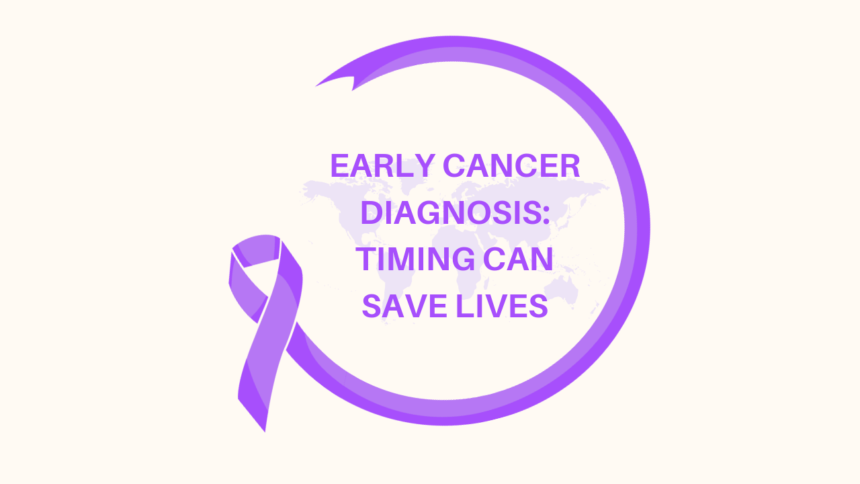In India, the prevalence of cancer is steadily rising, and the projections for future cases are even more concerning. Yet, early diagnosis remains one of the most critical factors in the successful treatment of cancer. Unfortunately, many individuals delay visiting a healthcare professional until their symptoms become severe, often leading to late-stage cancer diagnoses with poorer outcomes. Recognizing the early warning signs and seeking timely medical attention can significantly improve survival rates and outcomes. In this blog, we will explore common early symptoms, risk factors, and when it is essential to consider cancer screening.
Early Warning Signs: Key Indicators that Warrant Medical Attention
Symptoms of cancer can vary depending on the type, but certain signs should never be ignored. Here are some of the most common warning signs that may indicate the need for a cancer diagnosis:
- Unexplained Weight Loss:
Rajesh, for example, lost a significant amount of weight despite not dieting or exercising. Sudden, unexplained weight loss can be an early sign of cancers such as stomach, pancreatic, or lung cancer. - Persistent Fatigue:
Suman noticed that she felt constantly tired, even after adequate rest. Persistent fatigue, especially if unrelated to exertion, can be an early indicator of blood cancers like leukemia or other cancers that affect the body’s nutrient absorption. - Lumps or Swelling:
Manisha found a lump in her breast, while Arun noticed an unexplained swelling in his neck. Lumps or swellings that appear suddenly and grow in size should always be evaluated, as they could indicate breast or thyroid cancer. - Unexplained Pain:
Persistent pain in certain areas, like frequent headaches or abdominal discomfort, can sometimes signal underlying conditions such as brain tumors or ovarian cancer. If pain continues without an identifiable cause, it’s time to consult a doctor. - Persistent Cough or Hoarseness:
Ravi, a long-term smoker, developed a chronic cough lasting more than three weeks. Persistent coughing, especially when accompanied by hoarseness or blood in the sputum, could point toward lung or throat cancer. - Changes in Skin:
Priya observed that a mole on her skin changed in size, color, and shape. Skin changes, particularly in moles or freckles, may signal early-stage skin cancer and warrant an immediate visit to a dermatologist.
Common Risk Factors: Who Should Get Tested for Cancer?
Certain factors increase the risk of developing cancer. If you or someone you know falls under any of these categories, regular cancer screening should be a priority:
- Family History:
For instance, Kiran’s mother had breast cancer, putting Kiran at a higher risk. A family history of breast, ovarian, or colon cancer significantly raises the likelihood of developing these conditions. Regular screenings are crucial in such cases. - Age:
The risk of cancer increases with age. Ramesh, who is 55, should consider undergoing cancer screenings such as colonoscopies, mammograms, or prostate exams, based on his age and associated risk factors. - Tobacco and Alcohol Use:
Long-term smoking and excessive alcohol consumption are major contributors to cancers of the lungs, mouth, and liver. Anil, a chronic smoker, and Shalini, who consumes alcohol regularly, are at a higher risk. Quitting smoking and limiting alcohol intake can drastically reduce these risks.
When Should You Seek a Cancer Diagnosis?
If you experience any of the symptoms or risk factors mentioned above, it’s crucial to schedule an appointment with a healthcare professional or oncologist. Regular cancer screenings, such as mammograms, Pap smears, and colonoscopies, are essential, particularly for those with a family history or other high-risk factors. Early detection can make all the difference in treatment success.
For instance, Pooja, who had no noticeable symptoms, decided to undergo a routine screening at age 40 due to her family’s history of breast cancer. This timely decision led to the discovery of a small, early-stage tumor, which was successfully treated with minimal intervention.
Conclusion: Take Action Before It’s Too Late Cancer often doesn’t present clear symptoms until it has advanced, making early detection critical. Regular screenings, understanding the early signs of cancer, and staying informed can lead to life-saving diagnoses. Patients like Rajesh, Manisha, and Suman have shown that being proactive is key to conquering cancer before it progresses. Early detection opens doors to more effective treatments and better outcomes, so don’t wait for symptoms to worsen—get diagnosed and get treated early.

